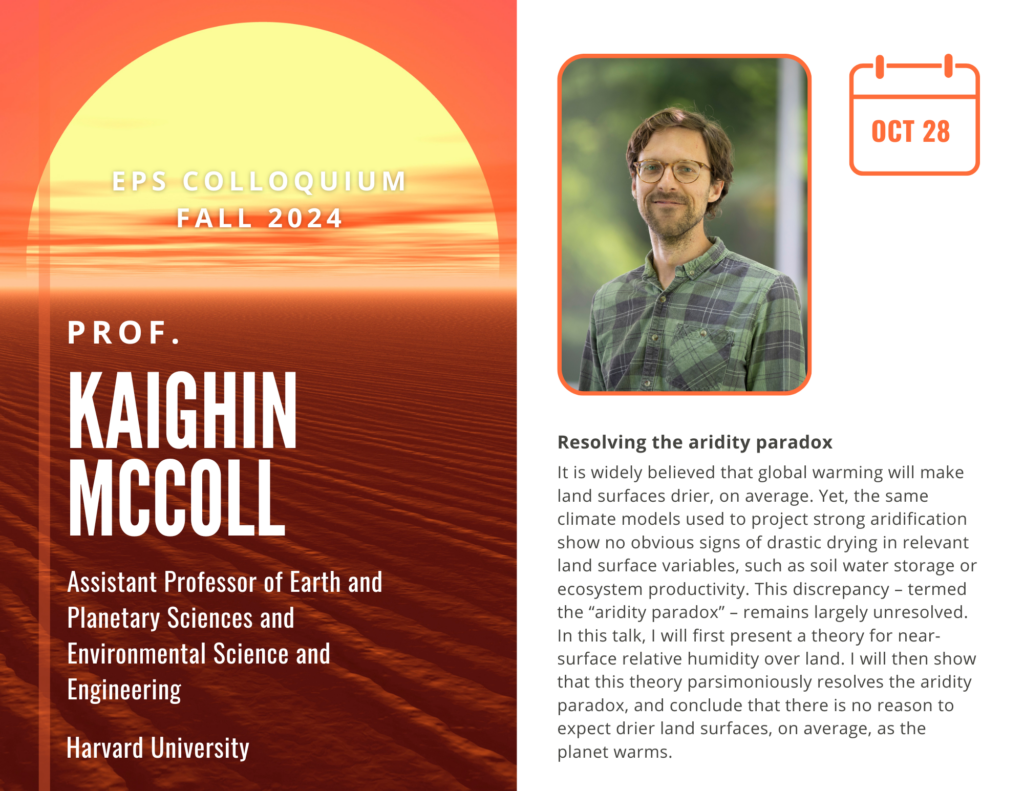EPS Colloquium – Kaighin McColl, Harvard University
Resolving the aridity paradox
It is widely believed that global warming will make land surfaces drier, on average. Yet, the same climate models used to project strong aridification show no obvious signs of drastic drying in relevant land surface variables, such as soil water storage or ecosystem productivity. This discrepancy – termed the “aridity paradox” – remains largely unresolved. In this talk, I will first present a theory for near-surface relative humidity over land. I will then show that this theory parsimoniously resolves the aridity paradox, and conclude that there is no reason to expect drier land surfaces, on average, as the planet warms.
To be added to the EPS colloquium mailing list, please contact Caroline Carr at carolinecarr@fas.harvard.edu.

Kaighin McColl is an Assistant Professor at Harvard, with a joint appointment in the Department of Earth and Planetary Sciences, and the School of Engineering and Applied Sciences. My group uses theory, numerical models and observations to understand the terrestrial water cycle, and its relation to weather and climate over land. We are particularly interested in aspects of weather and climate that are unique to land, compared with oceans. For example, land can dry out, whereas the ocean is always saturated. One common theme in our research is understanding the effects of water-limitation on evapotranspiration over land, and consequent changes to the surface energy balance, atmospheric boundary layer, and convective precipitation. Our work has practical applications to the forecasting and monitoring of storms, droughts, heatwaves and wildfires.

